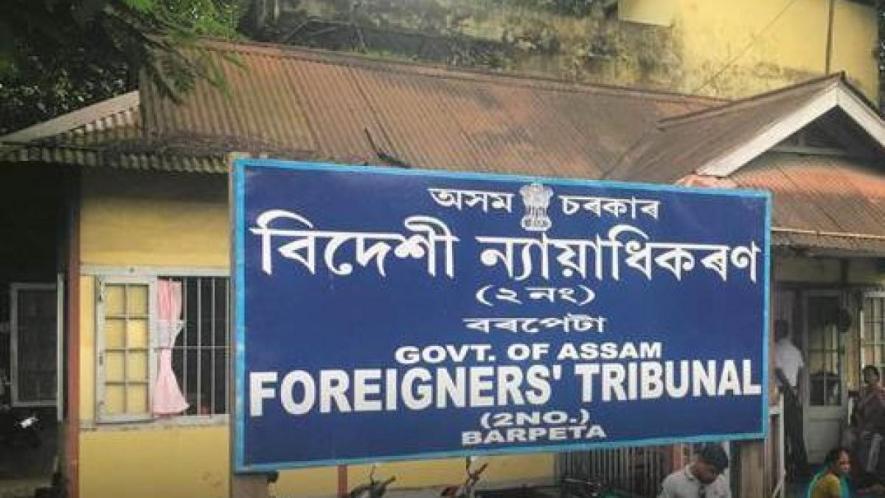Once Declared Citizen, Same Person Cannot be Declared Foreigner by Another FT: Gauhati HC

The Gauhati High Court has stated that if a person has been declared to be an Indian citizen in earlier proceedings, then the principle of res judicata applies, and any subsequent proceedings cannot declare the same person to be a foreigner. The bench of Justices N Kotiswar Singh and Malasri Nandi deemed that unless in subsequent proceeding it is concluded that the person declared Indian in previous proceeding is not the same person as in current proceeding, the earlier declaration cannot be interfered with.
In this case, the petitioner was proceeded against ex parte in a subsequent proceeding while in the previous one, he was already declared to be an Indian. The bench thus remanded the matter to the Tribunal to consider primarily whether the person in both proceedings is the same person and if that is the case, then the decision of the first proceeding shall sustain; which is that the petitioner is an Indian citizen.
The bench dealt with the case at the motion stage itself without requiring an issue of notice to the respondents.
The petitioner Md. Maynul @ Moinul Hoque filed an appeal against order passed by Foreigners Tribunal, Tezpur No.1, Assam, in F.T.(D) Case No.3512/2012 dated December 31, 2020. By this order, the petitioner was declared to be a foreigner of the post 1971 stream.
The petitioner submitted that another Tribunal, namely, Foreigners Tribunal Tezpur 1st, Sonitpur had in F.T. (D) Case No.8312/2012 and order dated August 31, 2017 declared him to be an Indian citizen. Accordingly, the reference was answered in negative against the State and in favour of the petitioner. However, by the 2020 order, the Tribunal subsequently held him to be a foreigner in an ex parte order. The petitioner’s inability to appear before the Tribunal was due to the Covid-19 pandemic and hence he prayed that on the basis of the previous order where he has been declared to be an Indian citizen, the latest order be set aside.
The petitioner’s counsel relied upon Abdul Kuddus vs Union of India (2019) 6 SCC 604 to state that since there is a similarity in the names and particulars of the proceedee in both the proceedings the second proceeding could not be sustainable. The counsel stated that the F.T.(D) Case No.3512/2012 proceeding was quasi judicial and the principle of res judicata will be applicable in this proceeding.
It has been clearly mentioned in Abdul Kuddus judgement that if there had been an order by the Foreigners Tribunal in favour of a person determining the citizenship, the said decision will be binding on subsequent proceedings against the same person and there cannot be another proceeding to re-determine the citizenship of the person, by applying the principle of res judicata.
Only when the Tribunal comes to a finding that the present proceedee is not the same person who was proceeded and was found to be an Indian in F.T.(D) Case No.8312/2012, the impugned order will be revived and the order of the Tribunal can be challenged by the petitioner both on the issue of identity of the petitioner and other grounds raised in this petition.
The court held that the Tribunal in the subsequent order was unable to appreciate this principle as the same was an ex parte proceeding and thus decided to remand the matter to Foreigners Tribunal, Tezpur (1st), Sonitpur, by setting aside the 2020 order and directed it to examine whether the petitioner is the same person who was proceeded in F.T.(D) Case No.8312/2012. The High Court refused to go into the merits of the case and remanded the case back to the Tribunal for consideration of this issue.
“The Foreigners Tribunal Tezpur No.1, Sonitpur shall decide first as to whether the petitioner is the same person who was proceeded in F.T.(D) Case No.8312/2012 or not, for which the petitioner shall appear before the Foreigners Tribunal on 14.02.2022 to enable the Tribunal to examine that he is the same person who was proceeded in F.T.(D) Case No.8312/2012,” the court ordered.
The court directed that this will be the primary issue that the Tribunal shall decide and if it is found that the petitioner is the same person who was proceeded in F.T.(D) Case No.8312/2012 then the case shall conclude in favour of the petitioner on the basis of the August 31, 2017 order declaring him an Indian citizen.
The court clarified that if the first Tribunal in 2017 had decided otherwise; i.e. if it had declared the petitioner to be a foreigner, the petitioner would be at liberty to challenge that order and the other findings of the court before this court.
The court then stated that since the petitioner’s nationality is under cloud, he will remain on bail on furnishing a bail bond of Rs. 5,000/- (Rupees five thousand) with one local surety of the like amount during the pendency of the proceeding before the Tribunal. The court directed concerned Superintendent of Police (Border) to record the petitioner’s biometrics while directing the petitioner to not leave the jurisdiction of Sonitpur district without furnishing the details of the place of destination and necessary information including contact number to the Superintendent of Police (Border), Sonitpur.
Similar case
In December 2021 a similar case came to light where Hasina Bhanu fell victim to such jeopardy and had to spend time in a detention centre! In 2016, Bhanu, a 55-year-old woman hailing from Shyampur Village (No-3), Darrang, Assam, was declared to be an Indian citizen. However, the same FT sent her another notice based on a referral from the Assam Border Police who suspected her of being a foreigner. In 2017. Bhanu again submitted her documents but in March 2021 was declared to be a foreigner and she was sent to Tezpur detention centre.
When the FT order was challenged before the Gauhati High Court, the court was flummoxed at how the same person could be first found to be Indian and subsequently declared foreigner. In its order, the HC said, “Considering the nature of the case, we are of the view that the current petition can be disposed of at this stage without calling for the records.” In this case as well reliance was placed on the Abdul Kuddus judgement.
The complete order may be read here:
Get the latest reports & analysis with people's perspective on Protests, movements & deep analytical videos, discussions of the current affairs in your Telegram app. Subscribe to NewsClick's Telegram channel & get Real-Time updates on stories, as they get published on our website.
























